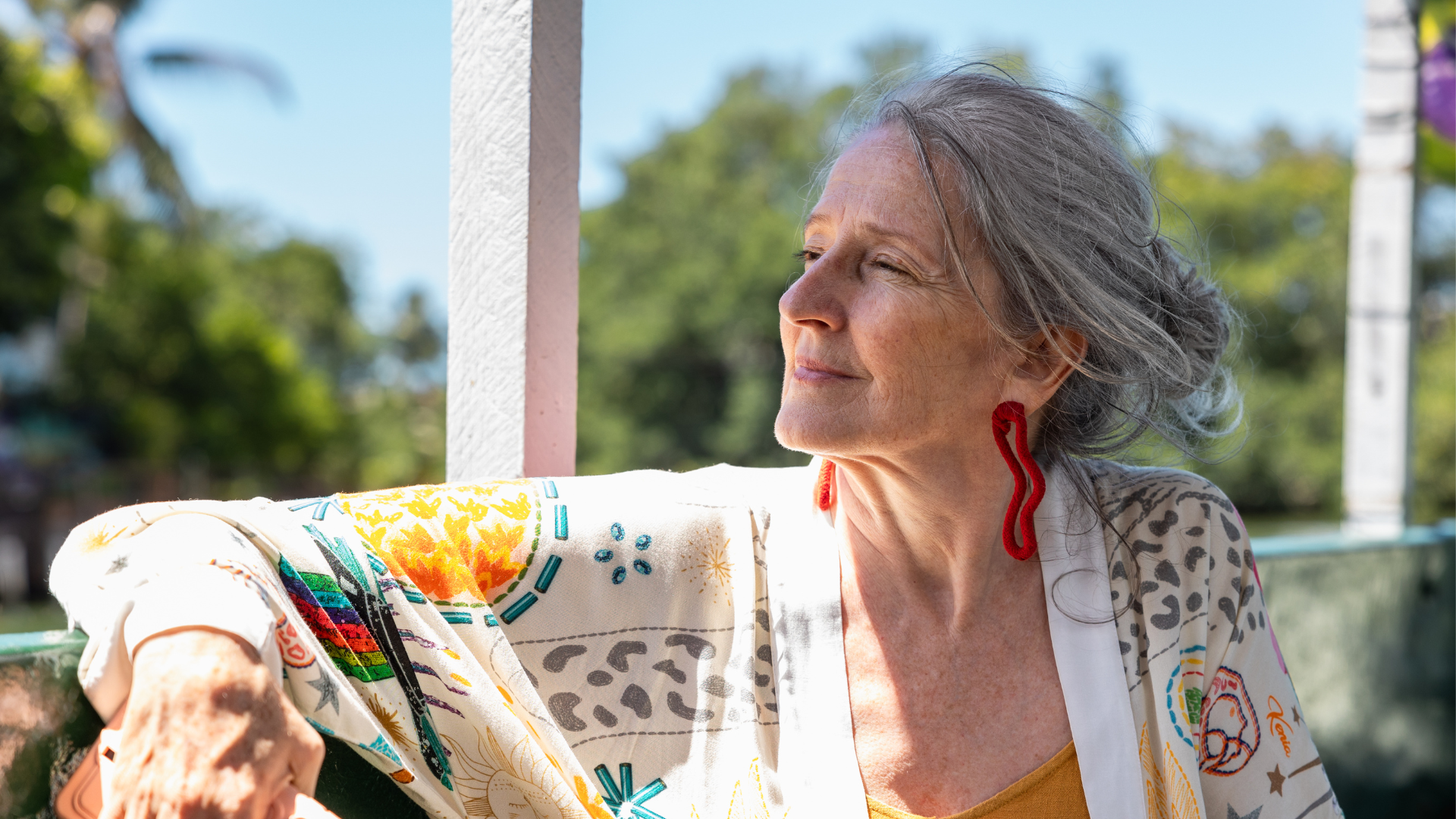Blog | 12/06/23
Confronting the Stigma: How to Enhance Caregiver Support at End-of-Life

HLTH 2023 Panel: The Uncomfortable Truth about Death. 10-08-2023.
November was National Family Caregivers Month, a time to honor those who provide care for a family member or loved one and recognize the challenges they face, especially at end-of-life.
Comfort and end-of-life care present family caregivers with distinct logistical and emotional challenges, including conversations about their loved one’s end-of-life preferences, stigma about decision-making, familiarity with complex care needs, and myths and misperceptions about palliative and hospice care.
For instance, despite the benefits of palliative care for both patients and their caregivers, these services are vastly underutilized. Approximately 14% of people who need palliative care receive it, due to a combination of institutional factors and individual perceptions, including awareness, hesitancy, and cultural considerations. This underscores the significant need for healthcare stakeholders to collectively strengthen comprehensive supports for caregivers navigating end-of-life care journeys. Our CEO Shara Cohen recently spoke on a panel on October 8 at HLTH 2023 about how healthcare organizations can enhance this experience for caregivers.
Here are three strategies identified in the discussion:
- Empowering Caregivers in End-of-Life Conversations. The stigma and discomfort surrounding death often prevents open conversations about values and preferences, in the event we are unable to make decisions for ourselves. At end-of-life, when we confront the inevitable, there is an incredible opportunity to provide family caregivers and our extended support networks with clarity and peace-of-mind while navigating something difficult. But it starts with open conversation.
“What we hear all the time from people who are going through this is, ‘I don’t want to be the person to pull the plug,’” Cohen said during the panel discussion. “And that burden for a caregiver who thinks they are making a decision for their loved one, rather than the comfort for a caregiver who thinks they are simply following through on the decisions of their loved one, is huge. The peace-of-mind that end-of-life discussions can have is one incredible opportunity we can address.”
Healthcare providers can help normalize and re-frame end-of-life discussions as profoundly positive opportunities to address values, preferences, and needs, for both the person dying and their caregiver. Cohen stressed the importance of including family caregivers in this discussion as a key stakeholder and encouraging people to have these discussions early and often. - Addressing Equity in End-of-Life Care. End-of-life conversations are nuanced and personal, often related to a person’s faith, their community of origin or past experiences with the healthcare system. As healthcare organizations address end-of-life decision support, it is essential to recognize personal context to prevent perpetuating inherent biases and constructing inadvertent barriers to care for certain patient populations.
“Nothing is more alienating than talking to people about options that are not available to them or talking about options that have stigma associated for them in ways that don’t appreciate that sensitivity,” Cohen said.
Addressing end-of-life care through a health equity lens requires culturally concordant care at every level of healthcare organizations, from those providers having conversations with patients and their families up to the people making systemwide decisions. - Coordinating an Interdisciplinary Approach to Advanced Illness. Lastly, end-of-life care requires an interdisciplinary approach, one that combines palliative, hospice, and home care. Helping caregivers understand and navigate these arenas is an essential part of supporting them through end-of-life transitions.
Recognizing this need, health plans are beginning to increase supports for caregivers navigating end-of-life journeys. One such plan is Blue Cross Blue Shield of North Carolina, which partners with Carallel for caregiver support. The goal was to increase patient engagement and satisfaction while helping caregivers address logistical challenges.
“What we’re seeing is that the caregiver can now actually focus more on being present with the person that they are giving care for,” said panelist Alicia Stokes, Vice President of Strategy, Planning and Performance and Government Markets for BCBSNC. “That’s been pretty remarkable.”
The Takeaway
There has been tremendous focus on the benefits of palliative and hospice care, creating opportunity for care that is concordant with patient preference. For example, palliative care has been linked to a 37% decrease in ICU admissions. But, when making decisions about care — such as the level of medical intervention, care setting and discontinuation of treatment — lack of transparency about choice and the consequences of those choices places significant pressure on family caregivers. Now more than ever, healthcare stakeholders need to normalize end-of-life discussions in equitable ways and ensure family caregivers have the tools and support they need to navigate end-of-life care.
Learn more about how to enhance caregiver support at end-of-life by downloading our free Ebook.
The latest from Carallel

Caregiver Journey Webinar
A Caregiver Conversation by Carallel: Helping Children Adjust When a Loved One Moves In
We dive into the practical realities of moving the person you're caring for into your home - and offer simple tips for helping children adjust....

Blog
The ‘Invisible Second Patient’: Understanding the Role of Dementia Caregivers
There are 16 million Americans caring for a loved one with Alzheimer’s disease or a related dementia today. Despite the group’s sheer size, they...
